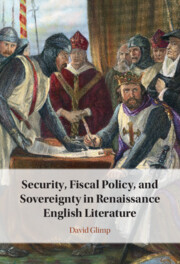Refine search
Actions for selected content:
1331 results
17 - Transformation and Reversion, 1989–1999
-
- Book:
- Distant Friends and Intimate Enemies
- Published online:
- 30 October 2025
- Print publication:
- 20 November 2025, pp 371-392
-
- Chapter
- Export citation
18 - From Partners to Archenemies, 2000–2020
-
- Book:
- Distant Friends and Intimate Enemies
- Published online:
- 30 October 2025
- Print publication:
- 20 November 2025, pp 393-422
-
- Chapter
- Export citation
7 - Medicine, Science, and the Environment
-
-
- Book:
- Explaining the History of American Foreign Relations
- Published online:
- 24 October 2025
- Print publication:
- 13 November 2025, pp 139-160
-
- Chapter
- Export citation

Distant Friends and Intimate Enemies
- A History of American-Russian Relations
-
- Published online:
- 30 October 2025
- Print publication:
- 20 November 2025
Chapter 6 - Bloomsbury and Music
- from Part I - Aesthetic Bloomsbury
-
-
- Book:
- A History of the Bloomsbury Group
- Published online:
- 09 October 2025
- Print publication:
- 23 October 2025, pp 86-101
-
- Chapter
- Export citation
7 - Violent Imaginaries and Practical Violence in the War Scroll
-
- Book:
- Violence, Power, and Society in the Dead Sea Scrolls
- Published online:
- 29 September 2025
- Print publication:
- 16 October 2025, pp 198-225
-
- Chapter
- Export citation

Understanding International Security
- Theory and Practice
-
- Published online:
- 11 October 2025
- Print publication:
- 30 October 2025
-
- Textbook
- Export citation
What traits do citizens value in leaders during war? Experimental and panel-based evidence from Ukraine in 2022
-
- Journal:
- Political Science Research and Methods , First View
- Published online by Cambridge University Press:
- 07 October 2025, pp. 1-10
-
- Article
-
- You have access
- Open access
- HTML
- Export citation
Kōmei School and the Path to Compulsory Education for Japan’s Children with Disabilities
-
- Journal:
- Asia-Pacific Journal / Volume 23 / 2025
- Published online by Cambridge University Press:
- 06 October 2025, e15
-
- Article
-
- You have access
- Open access
- HTML
- Export citation
12 - Conclusions
- from Part V - Global Deforestation
-
- Book:
- Clearcut
- Published online:
- 03 October 2025
- Print publication:
- 02 October 2025, pp 256-265
-
- Chapter
-
- You have access
- Open access
- HTML
- Export citation
Chapter 4 - Sovereignty and Security Dilemmas in William Shakespeare’s History Plays
-
- Book:
- Security, Fiscal Policy, and Sovereignty in Renaissance English Literature
- Published online:
- 04 September 2025
- Print publication:
- 18 September 2025, pp 92-126
-
- Chapter
- Export citation
Chapter 1 - Security Dilemmas
-
- Book:
- Security, Fiscal Policy, and Sovereignty in Renaissance English Literature
- Published online:
- 04 September 2025
- Print publication:
- 18 September 2025, pp 1-31
-
- Chapter
- Export citation
2 - Tortillas and Menstruation
-
- Book:
- The Making of Revolutionary Feminism in El Salvador
- Published online:
- 28 October 2025
- Print publication:
- 18 September 2025, pp 107-147
-
- Chapter
- Export citation
Chapter 6 - Metasecurity Dilemmas in John Milton’s Late Poems
-
- Book:
- Security, Fiscal Policy, and Sovereignty in Renaissance English Literature
- Published online:
- 04 September 2025
- Print publication:
- 18 September 2025, pp 161-202
-
- Chapter
- Export citation
Introduction
-
- Book:
- The Nation at Sea
- Published online:
- 28 August 2025
- Print publication:
- 11 September 2025, pp 1-12
-
- Chapter
- Export citation
3 - The Courts as Compromise
- from Part I - The Struggle for Neutrality, 1793–1797
-
- Book:
- The Nation at Sea
- Published online:
- 28 August 2025
- Print publication:
- 11 September 2025, pp 82-114
-
- Chapter
- Export citation
2 - War Comes to America
- from Part I - The Struggle for Neutrality, 1793–1797
-
- Book:
- The Nation at Sea
- Published online:
- 28 August 2025
- Print publication:
- 11 September 2025, pp 47-81
-
- Chapter
- Export citation

Security, Fiscal Policy, and Sovereignty in Renaissance English Literature
-
- Published online:
- 04 September 2025
- Print publication:
- 18 September 2025
7 - Fatal Wanderlust and Home Settlement
-
- Book:
- Love, Class and Empire
- Published online:
- 10 July 2025
- Print publication:
- 04 September 2025, pp 201-223
-
- Chapter
- Export citation
Chapter 3 - The Causes of the Peloponnesian War
-
-
- Book:
- Reassessing the Peloponnesian War
- Published online:
- 21 August 2025
- Print publication:
- 04 September 2025, pp 42-62
-
- Chapter
- Export citation
